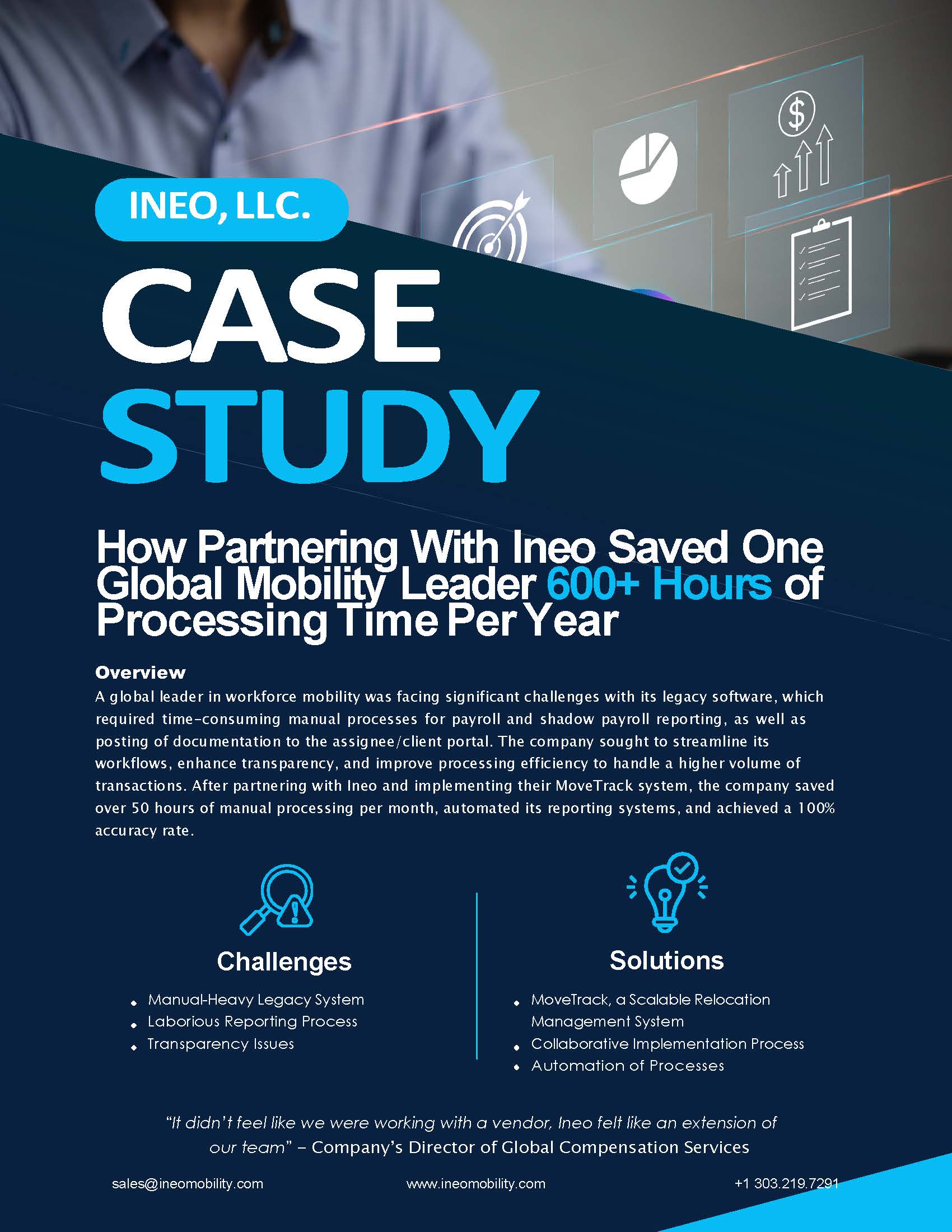Tax Equalization for Your Global Mobility Program: Why Matters

Learn how a tax equalization mobility policy can benefit your mobility program and your employees.
Occasionally, the difference in tax residency experienced during an international move means an assignee becomes accountable for additional taxes than the amount they would be responsible for if they’d remained in their home country. Understandably, the prospect of increased tax liability may impact the potential number of qualified employees who are less likely to accept international assignments. To offset higher tax burdens, many organizations with mobile workforces employ tax equalization as a part of their global mobility strategy.
What does it mean to adopt a tax equalization method policy? How does a tax equalization policy influence both the assignee and the organization? Understanding the tax equalization method, including the pros and cons, will enable your organization to decide if this taxation approach would be a beneficial addition to your mobility policy.
What is tax equalization?
Tax equalization is a methodology commonly used in global mobility programs to ensure an employee neither gains nor loses for tax purposes due to an international assignment.
Most companies choose the tax equalization methodology, where the employer pays actual tax liabilities. Alternatively, the “tax protection” approach requires the assignee to pay the actual tax liabilities. With tax protection programs, employees are reimbursed for any additional taxes, and there are no adjustments if the actual taxes are lower.
Equalization aims to eliminate an assignee’s additional tax liability by charging the assignee the tax they would have been responsible for if they’d remained in their home country. If applied correctly, tax equalization ensures an assignee won’t experience a positive or negative tax impact due to their global assignment.
In theory, tax equalization also reduces the risk of noncompliance regarding an assignee’s adherence to local tax law, ordinances, and exchange rates. The ultimate responsibility for filing the applicable tax returns lies with the assignee; however, the assignee is more likely to file such returns under tax equalization.
How tax equalization benefits the employee
Most organizations believe it’s a wise business practice to assist their international workforce with the additional tax burdens of working abroad. They recognize that employees are more likely to accept international assignments when presented with the financial reassurance tax equalization measures provide. There is a sense of security in knowing relocation won’t cause them to suffer financial setbacks that additional taxes can bring.
Providing a tax equalized approach to employees promotes positive company culture, fosters employee satisfaction, and incentivizes continuing their careers with your company instead of taking their valuable skill sets to your competitors.
Impacts on the employer
When considering the ramifications of implementing a tax equalization policy, many globally mobile businesses have a common misconception that establishing a policy will lead to higher administrative and overall company costs. However, a cost increase is not necessarily the case, and even if it is, the benefits the business experiences are likely to outweigh the additional expense.
Adopting an approach as part of a global assignment policy improves employees’ willingness to accept international assignments, increases an organization’s international presence and opportunities for business expansion, augments a valuable talent pool, and enhances overall work experience.
Ultimately, implementing a tax equalization policy presents ROI opportunities that exceed the potential additional administrative costs. As with any policy adjustments or extensions, we recommend consulting with global mobility tax professionals to confirm significant tax issues are considered in the case of both the organization and assignee.
Building an employee-friendly tax equalization policy
Creating a clear-cut tax equalization policy for international assignments is wise for any globally mobile organization. An established tax equalization policy can help you define how much in expenses your company is willing to cover before extending an offer to an assignee. Tax equalization policies should also explicitly outline how the policy functions, setting correct expectations for an assignee.
A thoughtful tax equalization policy should include how the company will execute tax equalization and what the employee can anticipate. Employee satisfaction is mainly dependent on clearly communicating relocation expectations from the outset, so be mindful of using accessible language that can be understood by employees who are unfamiliar with tax terminology.
An easily understandable policy should contain the following information:
- A clear explanation of company responsibility for taxes during an international assignment
- Clarification as to what compensation will be included in determining an assignee’s yearly equalization reconciliation calculation
- Clarification as to what personal income and deductions will be included in an assignee’s yearly equalization reconciliation calculation
- A straightforward description of employee tax compliance responsibility in the home and host countries
- Addressing applicability of pertinent host and home country income and social security taxes
- An agreement the assignee fully understands and will adhere to requirements of the tax equalization policy and corresponding home and host tax laws
- The schedule for submitting cash settlements following tax equalization estimations
It should be noted that if a home country’s tax return is not required to be filed each year, a form of tax equalization known as a “net-to-net” methodology can be utilized. Under net-to-net, an after-tax home country compensation amount is calculated, which is then translated to a host country currency and grossed up for taxes in the host country, thus leaving the assignee experiencing neither a gain nor loss for tax purposes by accepting the international move/assignment.
The experts in global mobility services
Questions about implementing a tax equalization policy for your global mobility program? Contact our industry professionals to learn how partnering with Ineo can help you determine a tax equalization strategy that works best for your organization.
Global Mobility Resources
Learn more about what’s going on at Ineo and insights into the complex world of global mobility from the industry’s top thought leaders and innovators.
Request A Demo
Whether you are new to the world of global mobility or you’ve been in the business for a while, Ineo is here to assist you.
The best way to learn how Ineo’s global mobility software can help your company revolutionize your global mobility program and support your business strategy is to see it in a demo.
Fill out this form to get started today.
Get Started

